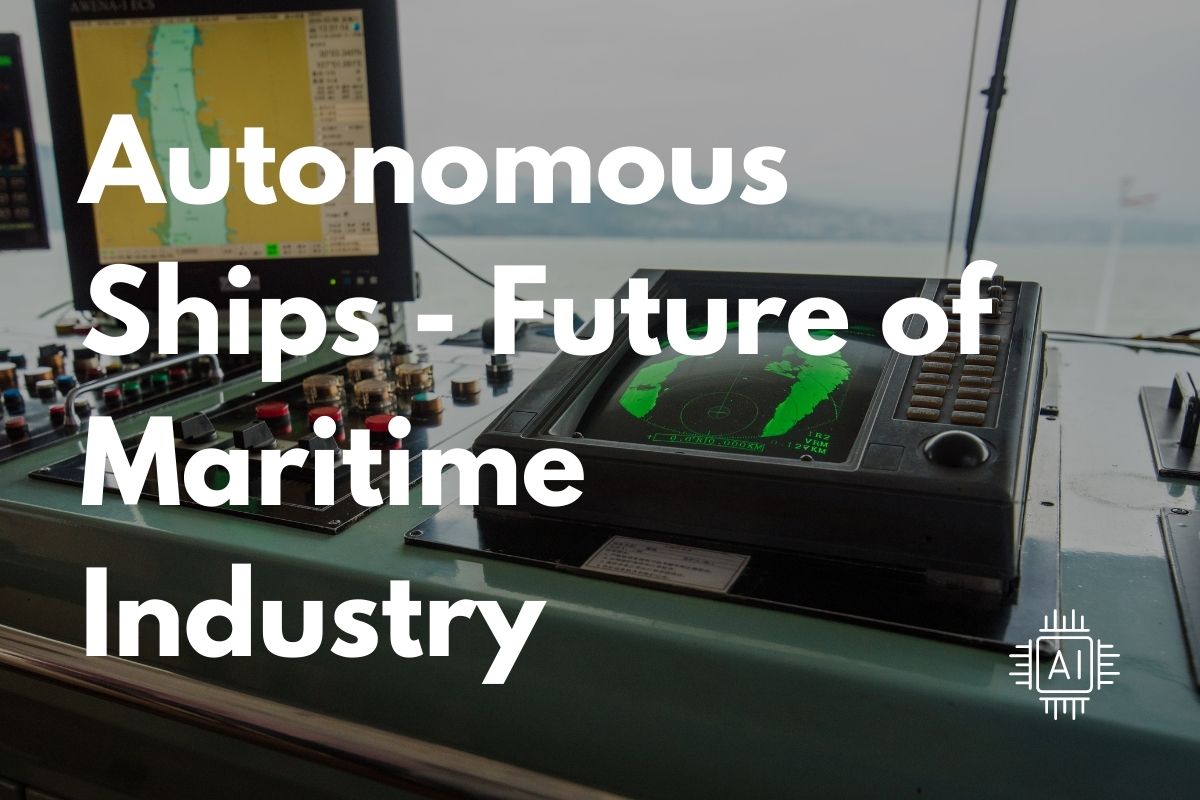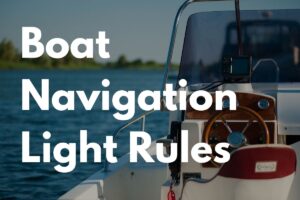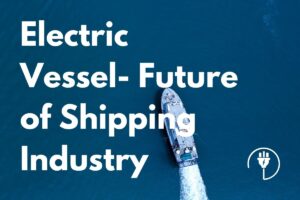The 4th industrial revolution is all about AI, Automation, Cloud computing, Augmented Reality, Big Data, and Machine Learning. These applications have brought technologies like Autopilot and driverless cars into reality. With further advancement of these technologies, the big transport development might be happening in waterways. Autonomous shipping; industry leaders call it the era of ship intelligence.
Why Autonomous Shipping?
Our world economy largely depends on the shipping industry. About 90% of the world trade is carried by ships. Nevertheless, accidents are common in waterways, many studies have shown that human error is the main reason for marine accidents.
According to European Maritime Safety Agency (EMSA), human activities such as inept maneuvering or seafarers fatigue drew 65.8% of accidents.
Allianz explains in a study that between 75% and 96% of marine casualties are due to human error.
It is expected that the trade volume in waterways will increase in the future means the number of ships will increase so does the marine accident.
Yet, industry experts believe and estimated that this accident could be reduced by advanced technologies like Artificial Intelligence, Deep Learning, and Big data. Integrating these technologies can help seafarers to produce insightful information like real-time findings and warning signals that can reduce marine accidents dramatically.
Furthermore, economical and environmental benefits are another reason to kickstart and development of autonomous vessels. AI-driven vessels will be more efficient and inexpensive.
Pollution is becoming another issue as the marine trade volume is increasing. Study reveals about 3% of global carbon dioxide CO2 emissions is occurring due to shipping vessels. In this situation, we must look forward to adapting newer technologies like Artificial Intelligence, Electric vessels, Autonomous ships, Zero-emission container vessels, etc.
Initiatives & Progress:
The International Maritime Organization (IMO) first addressed Autonomous ships in 2018 using the term Maritime Autonomous Surface Ships (MASS).
IMO interpreted it “as a ship which, to a varying degree, can operate independently of human interaction, and broadly laid out levels of autonomy.”
The degrees of autonomy are organized as follows:
This project was led by Rolls-Royce collaborating with Finferris and ESL Shipping Oy in 2016. To take the autonomous ship into reality they started working with universities, equipment manufacturers, ship designers. Eventually, they cooperated with classification societies to identify the economic, social, legal regulatory, and technological factors.
Finferries's 65-meter ferry, 'Stella' carried out a series of tests of sensors arraying in a range of operating and climate conditions.
ESL Shipping Ltd assisted the project by exploring the implications of remote and autonomous ships for the short sea cargo sector.
MUNIN is another initiative abbreviated as Maritime Unmanned Navigation through Intelligence in Network that had taken for sustainable growth of the European shipping industry.
MUNIN's vision of an Autonomous Ship, described as a vessel with:
"Next generation modular control systems and communications technology [that] will enable wireless monitoring and control functions both on and off board. These will include advanced decision support systems to provide a capability to operate ships remotely under semi or fully autonomous control."
On the finding of the AAWA project, Rolls-Royce and Finferries started another research named Safer Vessel with Autonomous Navigation (SVAN). Late in the year 2018 Rolls-Royce and Finnish state-owned ferry operator, Finferries had successfully demonstrated world’s first fully autonomous ferry.
This time Finferries' car ferry 'Falco' runs its voyage between Parainen and Nauvo fully equipped with Rolls-Royce Ship Intelligence technologies and it successfully autonomously navigates. They conducted their return journey under remote control.
Rolls Royce stated that:
"During the demonstration, the Falco, with 80 invited VIP guests aboard, conducted the voyage under fully autonomous control. The vessel detected objects utilising sensor fusion and artificial intelligence and conducted collision avoidance. It also demonstrated automatic berthing with a recently developed autonomous navigation system. All this was achieved without any human intervention from the crew."
In April 2019 KONGSBERG acquires Rolls-Royce Commercial Marine (RRCM). The unification of KONGSBERG and Rolls-Royce increases the activity towards ship intelligence, maritime digitalization, and enabling technologies for autonomous vessels.
For further development, Kongsberg Maritime started working with Bastø Fosen and the Norwegian Maritime Authority (NMA).
Bastø Fosen VI is designed with a fully integrated digital system and that can perform all docking and crossing functions to a repeatable level of accuracy.
Shone is another start-up that brings artificial intelligence on board. In 2018 Shone partnered with one of the largest shipping organizations CMA CGM Group to install AI systems on its container ships.
Shone stated that they have built the most advanced digital co-pilot that will help shipowners protect their people and the environment. They also added their technology will eliminate risk and reduce fuel consumption.

Final Words:
As the era of ship intelligence has begun it will transform the way we operate the vessels. Ships for upcoming days will be more efficient, less expensive, and can sail with minimal or less crew. Its already been a century we are using autopilot an innovation that change the aviation industry forever. Now the next big innovation at sea; Autonomous Shipping is on the go and it's the future of Maritime.




